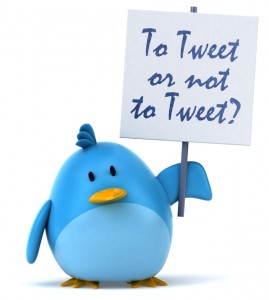Today’s post contains a lot of link love, but be sure come back for the free resource I’ve included at the end.
Social media has become the primary way many of your members communicate, yet the surprising findings reported in the Capterra blogpost: 10 Powerful Church Statistics on Social Media Use show that churches are having trouble keeping up.

We understand! It can be a full time job populating and monitoring several social channels (such as Facebook, Twitter, and YouTube. Wait, you ARE posting your weekly sermons to YouTube, aren’t you?!).
One of the statistics that caught my eye on Capterra’s list was #4: “98% of churches use Facebook, while only 30% use Twitter.” (Source:Buzzplant).
Here’s an interesting debate about which of the two platforms is better. One really good point a commenter made there had to do with the games Facebook plays with its ever-changing algorithm that affects where your posts show up. (Currently, only about 1 in 6 show up in your followers’ News Feeds.) Twitter, on the other hand, lets you be in control of the relevance of your posts. It’s much more straightforward that way. The two platforms are different and attract different personality types, so using both is still a good idea.
Twitter has its own language, but you can start with a few basics and still navigate. There are many similar lists out there, but here’s a guide to common Twitter acronyms. Interestingly, that language is making its way over to Facebook–that’s why you’ll sometimes see #comments. Those hashtags (#) actually began as an ingenious USER-developed way to find the posts in Twitter that were relevant to you, to group comments on the same topic, and let you talk to strangers about that topic. They’re really just for fun on Facebook. Here’s an explanation of why hashtags work for Twitter but not for Facebook.
The thing about Twitter is that even Twitter’s team itself was shocked to learn what was happening in the church world on its own platform. Turns out, it’s a very powerful tool for churches with much higher engagement for ministry leaders than even celebrities with millions of followers.
Check out those findings in our downloadable article: Twitter For Ministry Leaders:
It’s Powerful. It’s Popular. But Is It for You?
It may not be for you, but Twitter is clearly a tool with great Kingdom-potential. If you’re wanting to pump up your Twitter game, we suggest getting a tutorial from a Millennial. Or you could check out this easy guide from Michael Hyatt.
Your turn: If you’re a Twitter user, what has your experience been?


